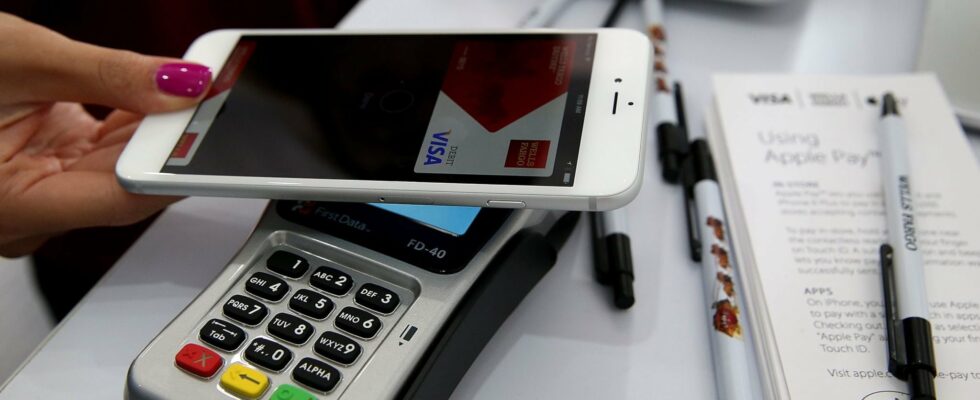Brussels gave its approval on Thursday, July 11, to the changes proposed by Apple to open its phones in Europe to contactless payment services that compete with its Apple Pay system, following an investigation opened in 2020.
“Competitors will now be able to effectively compete with Apple Pay for mobile payments made with iPhone in stores. Consumers will therefore have the choice between a greater number of secure and innovative digital wallets,” said Competition Commissioner Margrethe Vestage.
Accused of having restricted competition for years, Apple has agreed to offer third-party suppliers access on its famous iPhones to the NFC functionality that allows communication between devices and payment terminals in stores. These adjustments had been proposed on January 19 by the American giant. Since then, the Commission, the EU’s competition watchdog, has been sounding out interested parties before making a decision.
This commitment is valid for ten years throughout the European Economic Area (EEA, i.e. the 27 EU countries plus Iceland, Norway and Liechtenstein). Users will thus have the freedom to choose between Apple Pay and several other applications to make their payments. This announcement puts an end to one of the disputes between the Apple brand and the European Union, initiated by an investigation opened in June 2020 following complaints from European banks.
Apple Pay payment features and the Apple Wallet digital wallet “will remain available in the European Economic Area for users and developers,” a spokesperson for the group said in a statement. iPhones run exclusively on the iOS operating system developed by the brand, which had until now kept exclusive control over digital wallet applications for its devices.
The EU had already forced Apple to give in in September
The Cupertino group has built its success on a closed ecosystem around iPhones and iPads, all of whose parameters it controls, citing security imperatives and increased user comfort – a philosophy in direct opposition to European competition rules. Apple had already yielded to EU pressure last September by agreeing to integrate the universal charging port known as “USB-C” into its new range of iPhones, in order to comply with European legislation that the group has long fought.
Other disputes remain pending, notably concerning its App Store app store. On June 24, the European Commission paved the way for a giant fine against Apple, considering as a preliminary that the App Store did not comply with the new EU competition rules – something the apple brand denies, which could force it to change its operation. “The App Store rules infringe the new Digital Markets Regulation (DMA), which came into force in March, preventing app developers from directing consumers to alternative distribution channels for offers and content,” the Commission had estimated in a “preliminary opinion”.
For similar reasons, the Cupertino group was fined 1.8 billion euros by the Commission in early March, following an investigation opened in June 2020 following a complaint filed by the music streaming platform Spotify.
